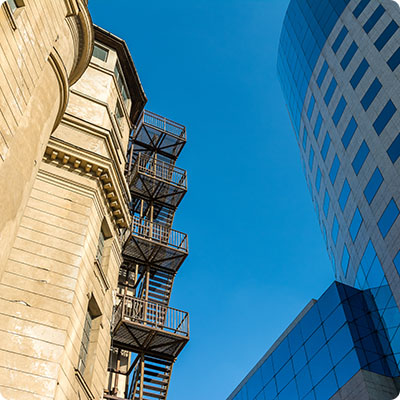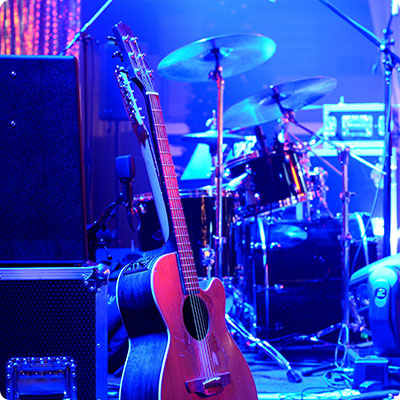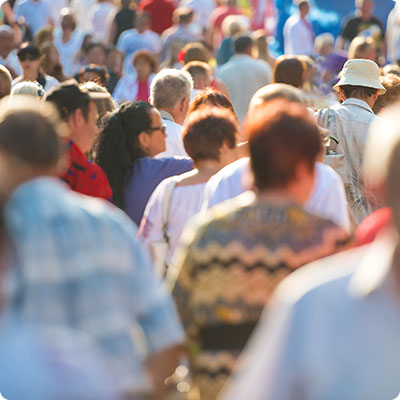The Paraguayan lifestyle
In this young country (30% of the population is under 15 years of age and the average age is 26), people live in a Western-style way, but still retain their traditions and sense of community. It's nice to get together on Sundays with family and friends and enjoy an asado. Discussing around a tereré or chatting on social networks, Paraguayans are at the top of both fronts! We live from day to day, in a certain carefree way, despite the credits we have to pay. Many Paraguayans claim this slow life and you will rarely see aggressive relationships between people. Improvisation is often the rule, even at work. Punctuality is not a must either, you'll have to get used to the hora paraguaya! The Paraguayan is a patriot and regularly pays tribute to the heroes of the past, but paradoxically he shows a kind of inferiority complex for his country ("Why on earth did you come to Paraguay?"). Yet he loves his Guaraní land and only leaves it under duress and coercion. He is curious towards the foreigner, whom he welcomes with warmth, but also sometimes with a slight timidity. He often asks him questions that are a little embarrassing ("Why don't you have a child?", "How much do you earn?"). He also likes to tease the foreigner with a few chistes (jokes), and to teach him words in Guarani. These words often have a double meaning, which provokes great laughter!
The educational system
The school system includes, the equivalent of nursery school(educación inicial); primary school(educación escolar básica) from the1st level (primer grado) at the age of 6, to the 9th level (noveno grado) at the age of 14-15; secondary school(educación media or colegio), with 3 levels and which ends with the baccalaureate (bachillerato) or a technical diploma; and finally higher education. Classes are held in the morning, from 7:00 to 11:00 a.m., or in the afternoon, from 1:00 to 5:00 p.m. You come dressed in a clean, ironed uniform! School is free and compulsory from the last year of kindergarten(pre-school) to the end of secondary school. But dropping out of school is common (6 out of 10 students do not finish secondary school), most often for economic reasons. There are about 40 universities in the country. The oldest and most prestigious are the Universidad Nacional (public) and the Universidad Católica (private), which have branches in the country's major cities. The university system allows students to study in the evenings in order to be able to work during the day to finance expensive studies, especially in private universities. According to international studies, the Paraguayan education system is one of the worst on the continent. The budget for education is 4.7% of GDP, but there are significant problems of corruption. There are also wide disparities between urban and rural areas. In recent years, education has been provided in both languages: children learn first in their mother tongue and the second language is gradually being introduced into education. The aim was to combat illiteracy and illiteracy in the countryside, while at the same time promoting the Guaraní language. Lastly, the Ministry of Education has an entity responsible for guaranteeing the school education of indigenous children, with an education policy adapted to community languages, cultures and standards.
A declining birth rate
In this very Catholic country, people get married in church, usually around the age of 20-25, or even much younger. The birth rate is around 2.5 children per woman today, compared to 4.3 in the late 1990s, and 7 in the 1960s. Women are often the heads of the household. They are very protective of their offspring, up to advanced ages, especially with their sons who often live late at home with their parents. Daughters are more independent and marriage is an opportunity to leave the family home. The situation of early pregnancies is worrying. In 2019, one in five pregnancies involved girls under the age of 16. For religious reasons, abortion was prohibited in Paraguay, even in cases of rape, subject to severe criminal penalties. The only exception was if there was a risk to the mother's life.
Women in Paraguayan society
On the street, giant ads praising the latest smartphone slipped into the middle of a generous chest are common and illustrate a certain image of women. Gender inequalities are significant, in jobs, politics, etc. The situation of single mothers (madres solteras) is also a real social problem in Paraguay. According to official data, 7 out of 10 Paraguayans are not recognized by their fathers at birth! In Paraguay, only the name of the person accompanying the child is entered in the birth register. However, many fathers do not wish to assume their role (or are unaware of their paternity). Unmarried mothers are therefore the sole managers of the household, and it is estimated that 25% of them are in this situation. The subject has become less taboo since a former president of the Republic himself, Fernando Lugo, admitted to being the father of a child he had never acknowledged. The former bishop even had to undergo paternity tests at the request of other women. Some explain that this phenomenon began in the 16th century. The region was nicknamed "Mohammed's Paradise" because of the harems that the conquistadors had granted themselves with the Guaraní women. Later, in the 1870s, Paraguay was nicknamed the "Land of Women" because most of the male population had been exterminated during the war. The country had to be repopulated and polygamy was tolerated. A macho culture developed and women were (and sometimes still are) educated to procreate. Today, paternity suits are on the increase, but DNA tests are expensive. Legislative reforms have been proposed but have never seen the light of day. The majority of the Congress is indeed composed of men, to whom such a law could, one day or another, be detrimental
The LGBTI community
"I would shoot myself in the genitals if I learned that my son was homosexual" (Horacio Cartes, future president of the Republic, during his presidential campaign in 2013). Homophobic comments are still very common in Paraguay today and 80% of the population rejects the idea of a civil union between two people of the same sex. During the Stroessner dictatorship, the homosexual community was severely persecuted. Suspected homosexuals were placed on a list, now known as the "list of 108". All 108 people were arrested and tortured (see Renate Costa's documentary Cuchillo de Palo). The number 108 still pejoratively refers to the LGBTI community. This is why some hotels do not have rooms with this number... Physical and psychological assaults are common, especially by the evangelical movement Pro-vida (which fights especially against condom use and abortion). They are rarely punished by the justice system. LGBTI couples therefore rarely show signs of affection in public places and risk being harassed in the name of good morals... There are however an increasing number of gay friendly places and various LGBTI organisations are actively campaigning against any type of discrimination based on sexual orientation and gender identity. For example: Somos Gay, La Coalición LGBTI del Paraguay, 108 Memoria, or Aireana. The Paraguayan film The Heiresses by Marcelo Martinessi, is a bold tribute to diversity. The fact that the film received a standing ovation from international critics was a blow to Paraguay's conservative moral order.
The place of the native
In Paraguay, the indigenous people are often treated condescendingly and their culture is little valued. National surveys of indigenous households reveal deep socio-economic disparities between them and the rest of the population. Their average monthly income is reported to be 30 per cent lower than that of the rest of the population, and the illiteracy rate is reported to be eight times higher. The vast majority live in rural areas, but some families, or entire communities, sometimes have to flee to the cities as a result of illegal land grabbing. For the Indians, nature is the source of life, Mother Earth, where deities and ancestors live. It is also the mother earth, which offers game, fruits and plants to heal themselves. Their traditional way of life is not in line with the values of Western society that are imposed on them, and these communities lose all their bearings. Some fall into alcoholism and live from begging, in great misery. The Paraguayan Constitution and international law recognized the right of indigenous peoples to live on their ancestral lands without financial compensation. Since the 1990s, indigenous organizations have been taking legal action to assert their rights. These actions, rarely effective before local judges, have more impact at the Inter-American Court of Human Rights (IACHR), which has binding force on States. Unfortunately, the Paraguayan authorities rarely show great zeal in enforcing the decisions.
















